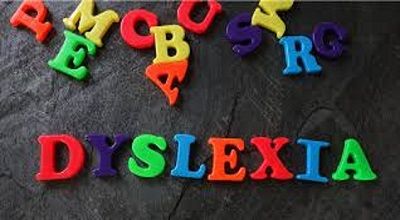Support Students With Dyslexia
Resources to Support Students With Dyslexia and Who Is Affected? To support students with dyslexia, there are several valuable resources and strategies available:
- National Center on Improving Literacy: They offer a comprehensive toolkit for supporting students with dyslexia. This includes online tutorials, tools, videos, infographics, and resources. That covers various aspects like understanding dyslexia, screening students for dyslexia risk, and identifying school-based supports. Effective reading instruction, and intensifying reading instruction for those with dyslexia.
- Teach.com: Provides insights into dyslexia as a language-based learning disability affecting the ability to read, spell, write, and speak. It emphasizes early identification and intervention as crucial for effective learning. The site recommends structured literacy and other specific learning and practice activities tailored for students with dyslexia.
- TechNotes Blog: Suggests practical classroom strategies such as breaking down tasks into smaller steps. Providing multisensory instruction, and utilizing assistive technology. Offering positive reinforcement, and maintaining open communication with parents and guardians. These methods are designed to help dyslexic students better understand and retain information.
Read More…
- Giving Compass: Highlights the importance of using a variety of tools and resources to support students with dyslexia. This includes online dyslexia screeners, leveraging existing reading data, and accessing free online resources from organizations. Like the International Dyslexia Association and the Yale Center for Dyslexia and Creativity. Schools are encouraged to have a dedicated team to assess and address the needs of dyslexic students.
- Indiana University Bloomington’s School of Education: They have developed a Dyslexia Toolkit, which offers educators high-quality materials. Such as articles, teaching guides, sample lessons, and videos. These resources are aimed at teaching basic reading skills to students with or at risk for dyslexia.
These resources provide a blend of theoretical knowledge about dyslexia. Practical strategies for educators, parents, and guardians to effectively support students with this learning disability.
Who Is Affected by Dyslexia?
Dyslexia affects a significant portion of the population, with varying degrees of severity. Here are some key points about who is affected by dyslexia:
- Prevalence: Dyslexia affects approximately 1 in 10 people. This indicates a widespread impact, with many individuals experiencing some form of dyslexia during their lifetime.
- Diagnosis and Identification: Many individuals with dyslexia are not diagnosed until they have been in the educational system for several years. In some cases, they may not be identified until adulthood. The delay in diagnosis can lead to challenges in academic environments, underemployment, and lower self-confidence.
- Age of Identification: It is not uncommon for students with dyslexia to remain undiagnosed until at least third grade or later. Early identification is critical, as students who receive effective interventions in kindergarten. Or first grade often have fewer problems learning to read at grade level compared to those identified later.
- Long-term Impact: Research indicates that a significant percentage of children. Who are poor readers in third grade continue to struggle with reading into ninth grade and even into adulthood. Therefore, early intervention is crucial for mitigating long-term difficulties.
- Learning Challenges: Dyslexia primarily affects the ability to read, spell, write, and speak. It is a language-based learning disability that involves difficulty recognizing phonemes. The basic sounds of speech, and connecting these sounds to their corresponding letters and words.
- Variability: The severity and specific challenges of dyslexia can vary widely among individuals. Some may have mild difficulties, while others might experience more significant challenges in their reading and language processing skills.
Dyslexia is a complex condition that impacts a broad and diverse group of individuals. Early detection and tailored educational strategies are key to supporting those with dyslexia in achieving their full potential.





